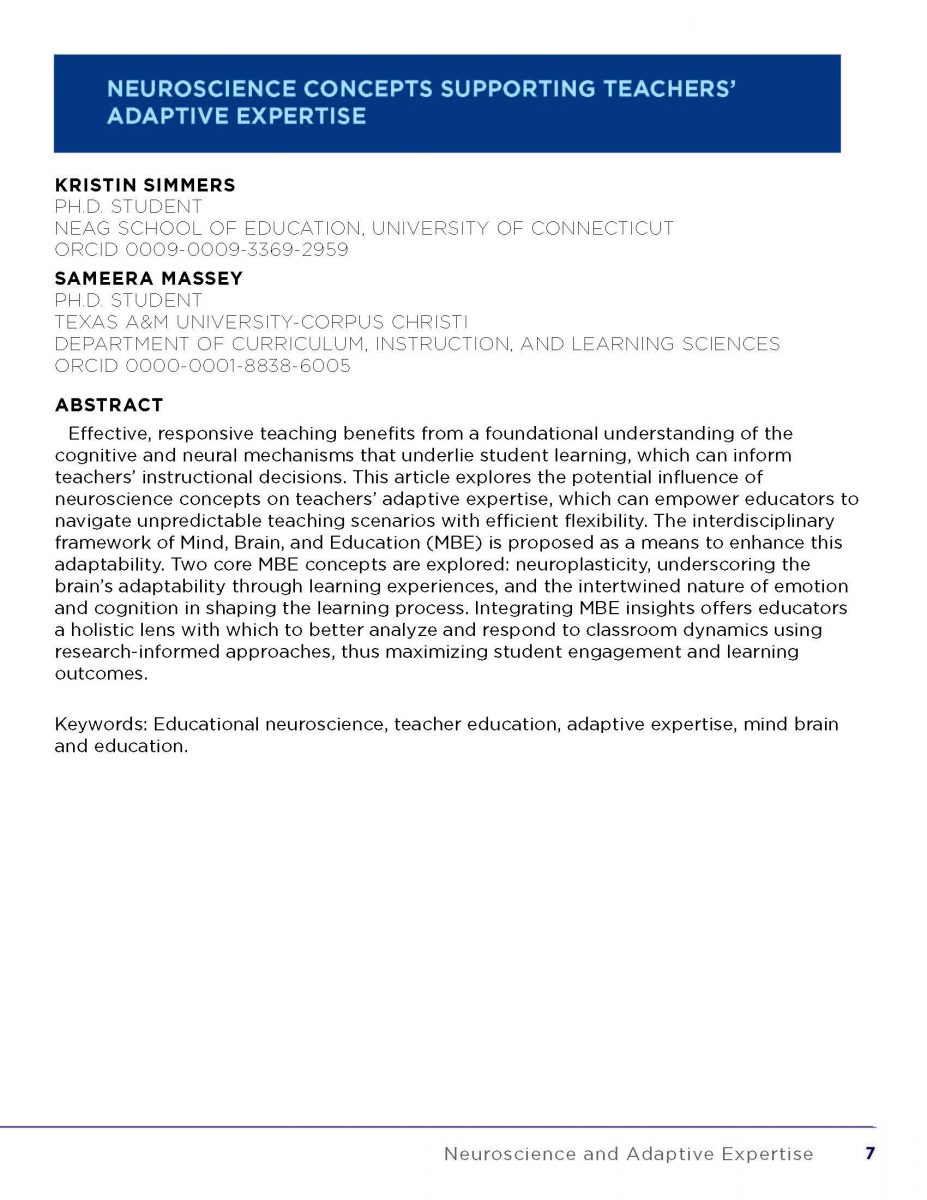Authors
Kristin Simmers, Ph.D. student, Neag School of Education, University of Connecticut
ORCID 0009-0009-3369-2959
Sameera Massey, Ph.D. student, Texas A&M University-Corpus Christi, Department of Curriculum, Instruction, and Learning Sciences
ORCID 0000-0001-8838-6005
Abstract
Effective, responsive teaching benefits from a foundational understanding of the cognitive and neural mechanisms that underlie student learning, which can inform teachers’ instructional decisions. This article explores the potential influence of neuroscience concepts on teachers’ adaptive expertise, which can empower educators to navigate unpredictable teaching scenarios with efficient flexibility. The interdisciplinary framework of Mind, Brain, and Education (MBE) is proposed as a means to enhance this adaptability. Two core MBE concepts are explored: neuroplasticity, underscoring the brain’s adaptability through learning experiences, and the intertwined nature of emotion and cognition in shaping the learning process. Integrating MBE insights offers educators a holistic lens with which to better analyze and respond to classroom dynamics using research-informed approaches, thus maximizing student engagement and learning outcomes.
Keywords: Educational neuroscience, teacher education, adaptive expertise, mind brain and education

